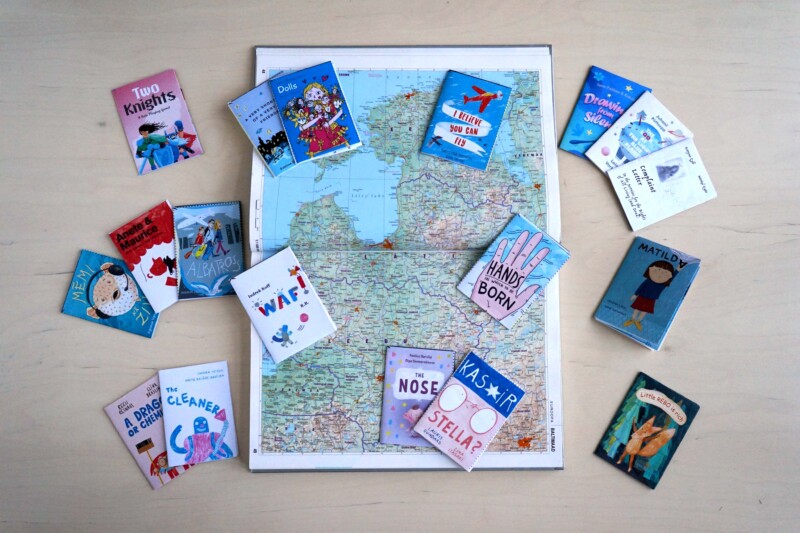Lithuanian, Latvian, and Estonian organizations promoting children‘s literature and reading worked together to create tiny books on human rights topics for kids. The international project Tiny Books from Baltic Authors brings together 36 writers and illustrators from three Baltic states that created stories that fit on a single sheet of paper. The books are available for a free download at www.tinybooks.eu.
The books are created by established writers and illustrators from all three Baltic countries who worked in pairs to create 18 tiny books for children ages 6–10. These books explore human rights and social justice related topics including equality, cultural diversity, freedom of expression, disability, gender roles, and ageism. The project organizers believe that, in today’s world, such subjects should be addressed already in childhood. According to Olga Tokarczuk, the winner of the Nobel Prize for Literature, “only literature is capable of letting us go deep into the life of another being, understand their reasons, share their emotions, and experience their fate.” The books created during the project will invite readers to challenge stereotypes: reading and discussing these stories with children can help foster empathy both at home and in educational institutions.
The project seeks to encourage collaboration of children‘s book creators in Lithuania, Latvia, and Estonia as well as promote professional Baltic children‘s literature around the world. The tiny books have been translated into as many as 10 languages – adding German, English, Spanish, French, Russian, Polish, and Italian to the original Lithuanian, Latvian, and Estonian texts – ensuring that children from all around the globe will be able to read these stories. The tiny books are available for free at www.tinybooks.eu. Readers can print them out or enjoy them in an electronic format. The tiny books are also accompanied by methodological material prepared for parents and educators by child psychologists, children‘s literature critics, and reading promotion specialists, encouraging adults to explore the stories together with children.
The project organizers hope that these tiny books from the Baltic countries will be shared far and wide around the world, and will be read and adapted for workshops and educational activities. “We also hope that this project will interest foreign publishers and encourage translation of children‘s literature from the Lithuanian, Latvian, and Estonian languages,” says Justinas Vancevičius, co-founder of Children’s World, the reading promotion programme that launched the Tiny Books project. Organizers plan to present the project at major international literature events, including the Vilnius, Bologna, London, and Frankfurt book fairs and various literature festivals in Europe.
The project is being developed by three Baltic organizations: Children’s World, a reading promotion programme launched by the public organization Centre for School Improvement, leaders in educational change in Lithuania and the project‘s main partner; the Latvian Section of the International Board on Books for Young People (IBBY); and the Estonian Children‘s Literature Centre.
The project is supported by the Baltic Culture Fund, which seeks to promote cultural collaboration between the Baltic countries and strengthen the internationalisation of Estonian, Latvian, and Lithuanian culture through joint cultural projects and events.
The project partners include the Lithuanian Culture Institute, Latvian Literature, the Lithuanian Section of IBBY, and the Child Psychology Centre in Lithuania.
Project visual materials have been created by illustrator Aušra Kiudulaitė.

